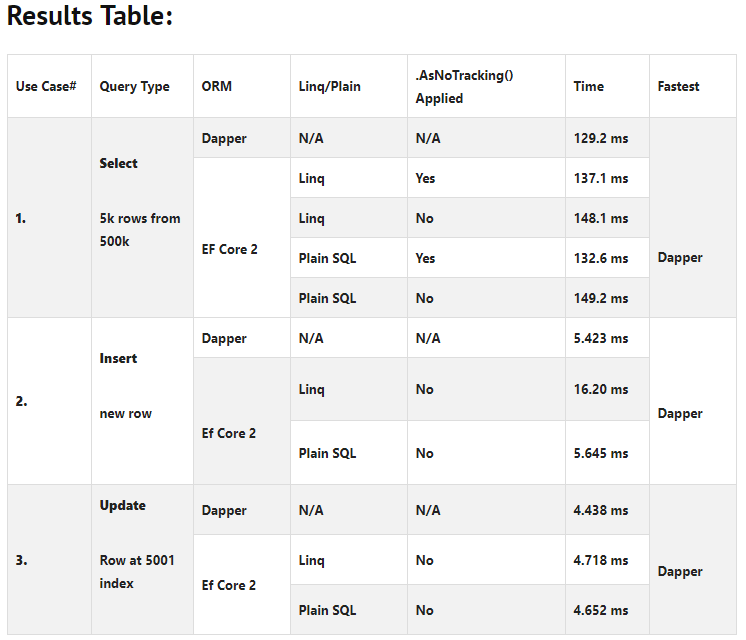I'm new to using ORM in dealing with database, Currently I'm making a new project and I have to decide if i'll use Entity Framework or Dapper. I read many articles which says that Dapper is faster than Entity Framework.
So I made 2 simple prototype projects one using Dapper and the other uses Entity Framework with one function to get all the rows from one table. The table schema as the following picture

and the code for both projects as the following
for Dapper project
System.Diagnostics.Stopwatch sw = new System.Diagnostics.Stopwatch();
sw.Start();
IEnumerable<Emp> emplist = cn.Query<Emp>(@"Select * From Employees");
sw.Stop();
MessageBox.Show(sw.ElapsedMilliseconds.ToString());
for Entity Framework Project
System.Diagnostics.Stopwatch sw = new System.Diagnostics.Stopwatch();
sw.Start();
IEnumerable<Employee> emplist = hrctx.Employees.ToList();
sw.Stop();
MessageBox.Show(sw.ElapsedMilliseconds.ToString());
after trying the above code many times only the first time I run the project the dapper code will be faster and after this first time always I get better results from entity framework project I tried also the following statement on the entity framework project to stop the lazy loading
hrctx.Configuration.LazyLoadingEnabled = false;
but still the same EF performes faster except for the first time.
Can any one give me explanation or guidance on what makes EF faster in this sample although all the articles on the web says the opposite
Update
I've changed the line of code in the entity sample to be
IEnumerable<Employee> emplist = hrctx.Employees.AsNoTracking().ToList();
using the AsNoTracking as mentioned in some articles stops the entity framework caching and after stopping the caching the dapper sample is performing better, (but not a very big difference)

